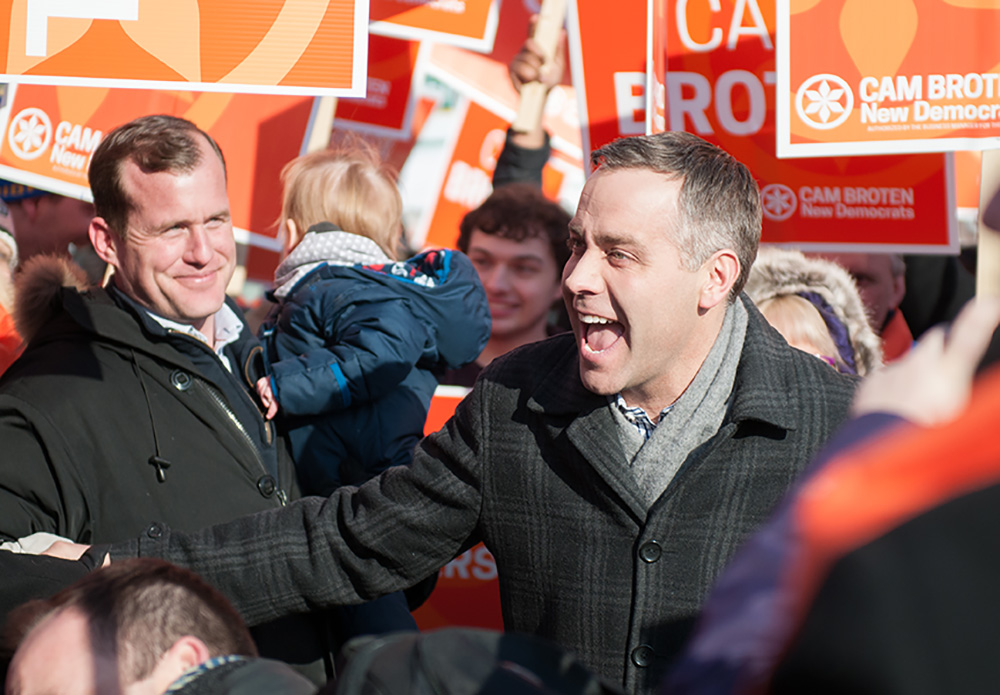Analysis by Allison Bamford
In the days leading up to an election, Saskatchewan voters can expect to see a vast array of proposed policies around healthcare, education, the environment and, of course, the economy. However, one item not being discussed in this year’s election platforms is the Active Families Benefit.
The annual tax credit was a 2009 Saskatchewan Party initiative to “improve access and remove barriers to children and youth participation in culture, recreation and sports activities,” according to the Government of Saskatchewan website. However, with several changes to the benefit throughout the years, the AFB is falling short of the promised improvements, specifically in the sports department.
At first, parents of children between the ages of six and 14 were eligible to receive an annual refundable tax credit of up to $150 per child enrolled in culture and sports activities. In 2012, the AFB was amended to allow children up to 18 years old to receive the tax credit. Then in 2015, the government announced only families earning $60,000 or less would be eligible for the credit.
There are other restrictions. The AFB is only eligible for registration or membership fees. Further, any amount reduced through fundraising, financial assistance, allowance or reimbursement is clawed back. There is also set criteria on which activities classify as eligible.
In 2011, Barbara von Tigerstrom and her colleagues from the University of Saskatchewan studied physical activity promoted through tax credits across Canada.
“Tax-based spending programs tend to be popular, partly because they can be publicized both as tax relief and as a way to achieve other social or economic aims,” stated their final report.
But there’s a catch. “It seems unlikely that the promise of a (tax credit) the following year will be enough to make it possible for lower-income parents to pay hundreds of dollars in registration fees for their children’s activities,” Tigerstrom’s study concluded.
“Families who are low income or living near the poverty line … don’t have the money to put their children in the sports regardless of the tax credit. They don’t have the money to begin with,” agreed Amanda McConnell, manager at Ehrlo Sport Venture, an agency that provides free sports programs to children.
Even if low-income parents do apply, $150 is a drop in the bucket for many sports. Regina Minor Hockey registration fees range from $650 to $2,700 depending on the age group. Regina Minor Football registration fees, though much cheaper, would still not be covered completely, as they range from $260 to $310.
The cost of sports registration is just the beginning. Extra costs for equipment and transportation are not compensated for under the AFB.
“The (AFB) is so misguided,” said McConnell. “$150 is negligible. That’s barely a good helmet.”
“Even buying a pair of soccer cleats or basketball runners or shorts (is expensive). A lot of the kids show up just wearing jeans,” said McConnell. “They don’t have separate athletic clothes because families can’t afford that. Some kids show up to play basketball in rain boots because that’s all the shoes they have.”
The U of S study found exclusion of athletic clothing and equipment “could undermine efforts to encourage greater physical activity, especially among children in lower-income families.”
In the 2014-15 provincial budget, $11.5 million was the estimated cost allocated to the AFB. In the 2015-16 provincial budget, the estimated costs were reduced to $5.5 million.
McConnell would like to see the tax credit removed completely and have the money put toward more beneficial programs.
“I would put in some sort of better subsidies for the youth to be able to participate, to reduce or omit completely the league fees,” McConnell said. “I (would) better fund programs like (Sport Venture) … so that money isn’t standing in the way of (kids’) participation in sport.”
Von Tigerstrom’s study agreed. “It is important to consider whether public funds are better spent on other strategies that could instead provide direct public funding to address environmental and systemic factors,” the report recommended.
The Active Families Benefit may have once been a promise from the Saskatchewan Party’s platform, but both the tax credit and the attention it receives have diminished between elections. This spring Ottawa axed the federal children’s fitness and arts tax credits. It may be time for the province to follow suit.


















